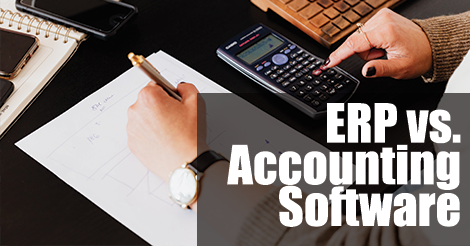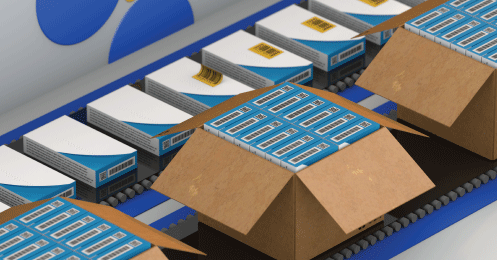Those of us in the software industry tend to use industry jargon so much that we sometimes forget that not everyone knows what we mean by terms such as "ERP Software". This was brought to my attention recently when an acquaintance asked my advice regarding her company's accounting software needs. She'd assumed that any accounting software package should be able to handle all inventory management, purchasing and other logistical requirements, yet she'd had several recommendations from industry insiders to look at software that turned out to handle all the basic accounting functions really well, but had limited or no functionality in the supply chain and logistical areas. She was not familiar with the expression "ERP Software".
To many people, Accounting Software and ERP are interchangeable, but if you're in discussion with a potential software vendor, or a consultant/recommender, they can mean very different things.
Accounting Software
The difference between ERP and accounting software is that accounting software generally only provides functionality for accounting (hence the name). This can include areas such as:
- Accounts Receivable
- Accounts Payable
- Bank Management
- Financial Reporting
- Basic Revenue/Sales Recording and Tracking
Accounting software is designed to manage only one specific area of a business, but it does this very well. As a small business, accounting software is often the first software system implemented in a business, while other operational requirements such as inventory management and customer service tasks are tracked manually using pen and paper or spreadsheets.
ERP Software
ERP software on the other hand, will always include the same functionality as accounting software, plus other tools for managing the entire supply chain and logistical requirements, such as:
- Inventory Tracking
- Warehouse Management
- Customer Relationship Management
- eCommerce
- Barcode Scanning
- and more
ERP is a fully integrated and comprehensive, end-to-end solution that covers all (or almost all) facets of the business. Many businesses start out with basic accounting functionality when the company is young and order volume is low. However, as your business grows and the need for additional functionality arises, it will come time to start looking at an ERP solution. Robust ERP software will also include industry-specific functionality that is more advanced. For example, features such as lot tracking, landed cost tracking, service and repair functionality, and document management.
Accounting Software vs. ERP
Because ERP software includes all the necessary accounting features, it would never make sense for a company to implement both systems. Instead, once your business has outgrown manual processes and requires additional features for warehouse management, inventory tracking, eCommerce, etc., it is time to start looking at an all-in-one ERP solution.
If you're in the market for new accounting software, consider whether an ERP solution would better meet your needs with our free Software Buying Guide.










